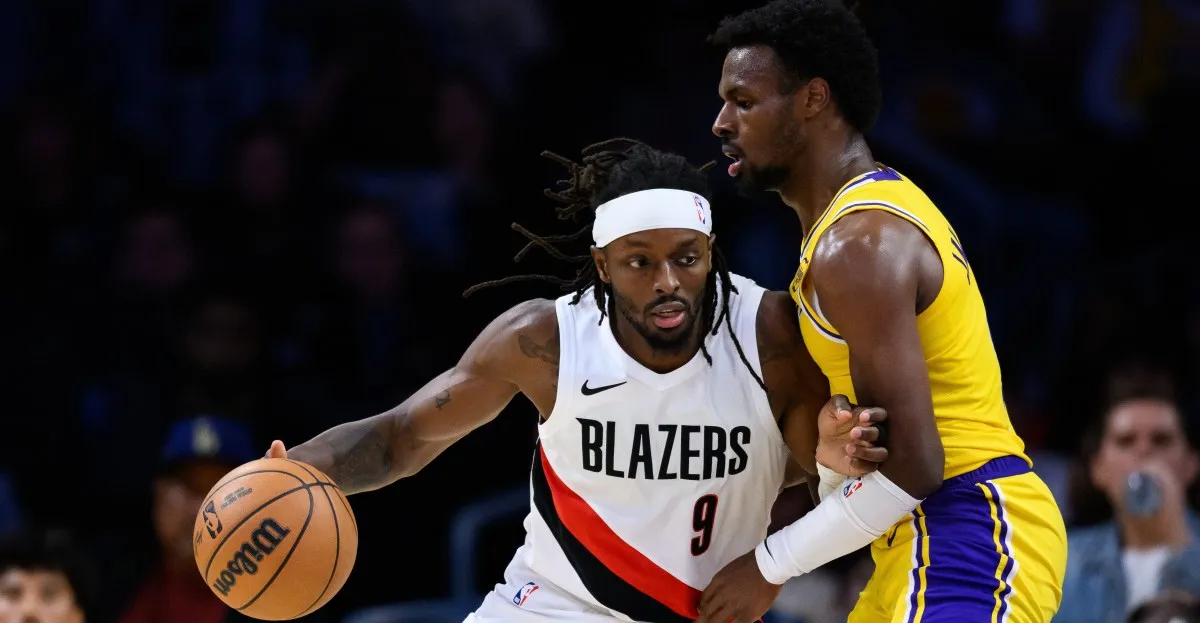
On Monday night, the Portland Trail Blazers faced off against a version of the Los Angeles Lakers that seemed reminiscent of those classic 1970s bands still touring with only a few original members. The marquee name may shine brightly, but without stars like LeBron James or Luka Doncic in uniform, the Lakers resembled a tribute act rather than a championship contender. While Austin Reaves put up an impressive 41 points, the Blazers secured a convincing 122-108 victory. Let’s dive into the key takeaways from this exciting matchup.
The game began with the Trail Blazers appearing as flat as a deflated basketball. Their performance was lackluster; they ambled instead of sprinting to cover the three-point arc and struggled to keep pace with their assignments on defense. Portland’s offensive strategy was stagnant, reminiscent of last year's struggles rather than this season's potential. Fortunately for the Blazers, the Lakers lacked a cohesive offensive game plan beyond Reaves, which could have led to a disastrous 40-10 start for L.A. without that advantage.
After a sluggish start, the Blazers’ second unit breathed new life into the game. The reserves managed to increase the tempo, with Jerami Grant leading the charge. Grant decisively attacked the lane rather than sticking to the perimeter, which ignited the rest of the team. He finished the game with 22 points on 7-13 shooting, alongside 3 assists and 3 steals, showcasing his importance to the Blazers’ resurgence.
Shaedon Sharpe had a standout moment with a spectacular dunk in the second quarter, but overall, his performance was mixed. Although he made a mini-comeback in the second half, he concluded the game with 16 points on 6-16 shooting over 29 minutes. On a positive note, Sharpe contributed 4 steals and 7 rebounds, which solidified his role on the court despite his shooting struggles.
One of the Blazers' saving graces was their ability to capitalize on the Lakers' offensive disarray. As Portland intensified their defensive pressure, the Lakers succumbed to mistakes, finishing with a staggering 25 turnovers. While the Blazers also turned the ball over 19 times, the Lakers’ error rate was significantly higher. Moreover, both teams struggled with their three-point shooting, particularly L.A., who shot just 1-12 from beyond the arc in the first half. Portland’s 5-19 showing was mediocre at best, but it kept them ahead by a slim margin of 6 points at halftime.
Despite an unsteady offensive display, the Blazers excelled in rebounding, securing 19 offensive boards that translated into a remarkable 35 second-chance points. This aspect of their game has historically been a hallmark of their attack, and it was encouraging to see it re-emerge as a strength, even if it was not the primary focus this season.
In a game that held special significance for Deandre Ayton, who faced the team that traded him, his performance was underwhelming. With 16 points, 8 rebounds, and 2 steals, Ayton struggled with foul trouble and soft defensive play. However, Deni Avdija rose to the occasion, scoring a team-high 25 points on 5-8 from the three-point range. His contributions were crucial in maintaining the Blazers' lead when the game became competitive.
Jrue Holiday also played a pivotal role in the second half, scoring 24 points on an efficient 10-15 shooting, along with 6 assists, 5 rebounds, 2 blocks, and a steal. His ability to deliver timely baskets helped keep the Lakers at bay as they attempted a late-game push.
As the Blazers faced the Lakers, they exhibited a refreshing aggressiveness that was sometimes lacking in previous seasons. Instead of relying solely on pick-and-roll plays and jump shots, they attacked the rim, which proved effective in fending off the Lakers’ late comeback efforts. The Blazers will look to build on this momentum as they prepare to face the Utah Jazz at 6:00 PM Pacific on Wednesday night.